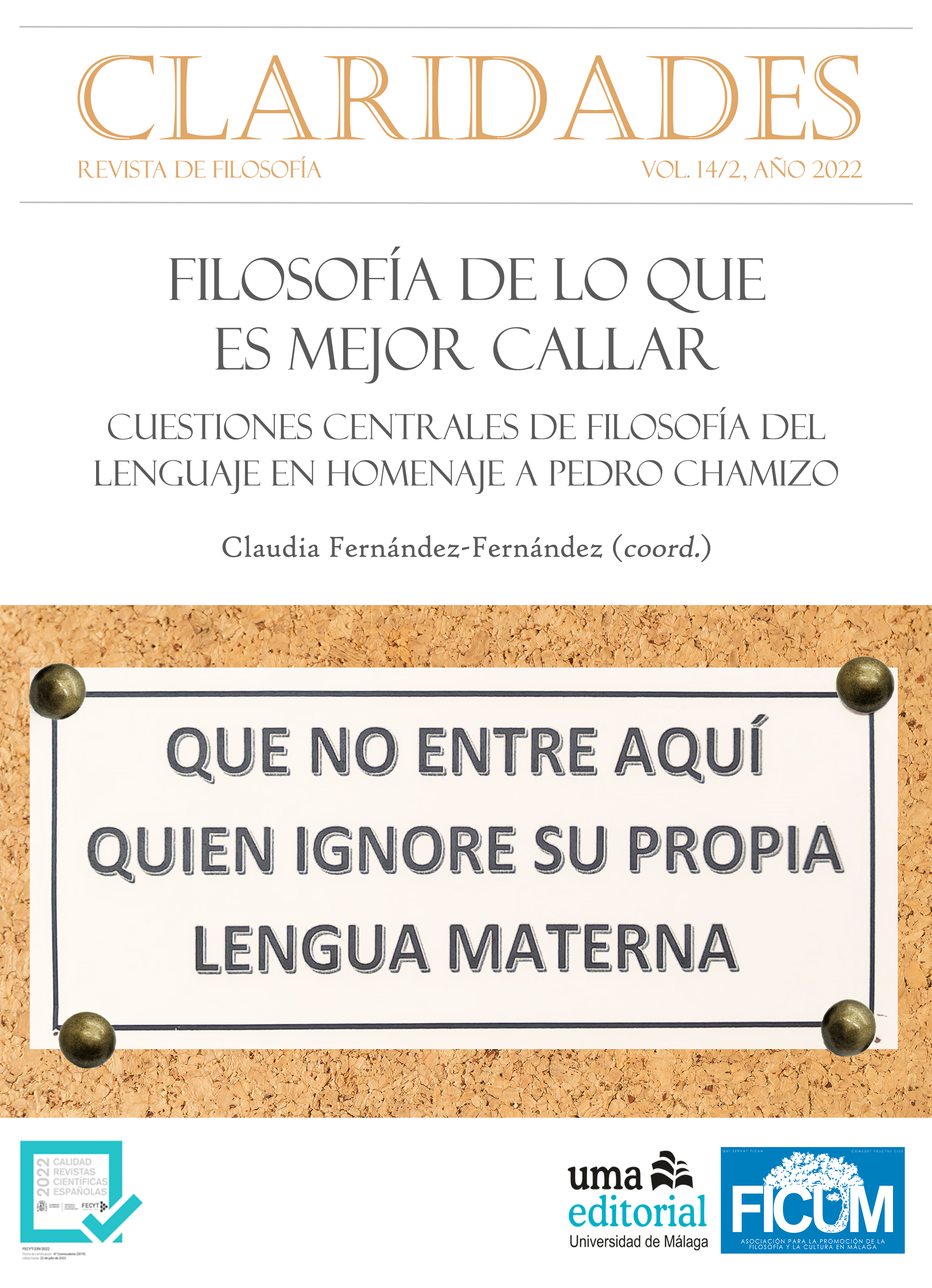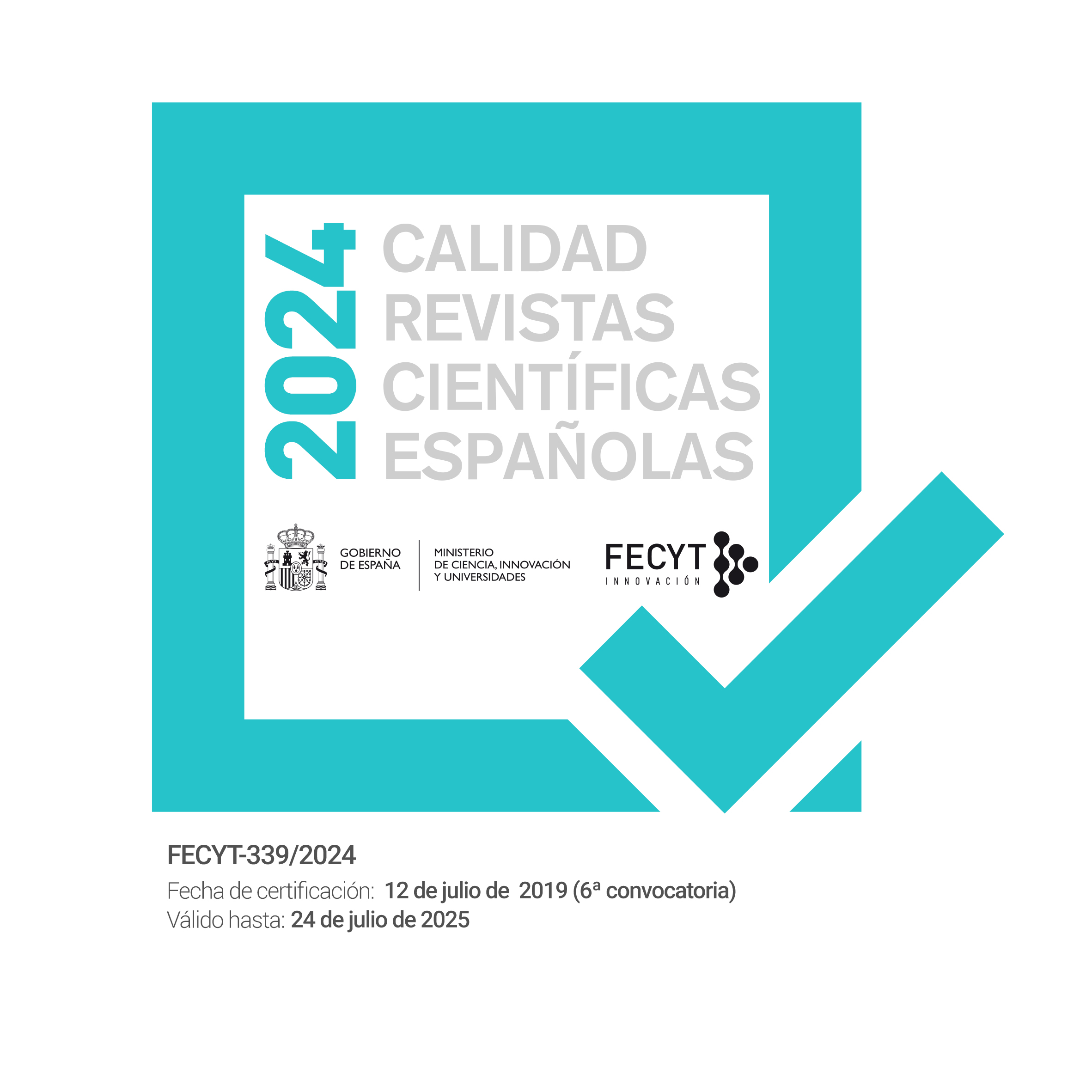Making the pandemic normal
cómo ‘endémico’ se convirtió en un eufemismo
DOI:
https://doi.org/10.24310/Claridadescrf.v14i2.15237Keywords:
Covid, Coronavirus, Disease management, Endemic, Euphemism, PandemicAbstract
In 2019 a novel coronavirus, SARS-CoV-2, spread around the world and a global pandemic was declared early in 2020. Currently, the pandemic has still not been brought under control. Over time, many new words have seeped into ordinary language and old words have changed their meanings. In this article, I trace the semantic development of the word ‘endemic’ which spread from science discourse into political discourse and then into public discourse and became a euphemism. People are told that they should now ‘live with’ the pandemic, a pandemic that is no longer dangerous, because it has turned endemic. This euphemistic use of ‘endemic’ has serious consequences for pandemic management and disease control, not only in countries like the UK, where the word has, indeed, become ‘endemic’, but around the world, as the word has the social function of concealing the circulation of the virus and normalising the spread of infection, even death.
Downloads
Metrics
Publication Facts
Reviewer profiles N/A
Author statements
Indexed in
-
—
- Academic society
- N/A
- Publisher
- Asociación para la promoción de la filosofía y la cultura en Málaga (FICUM) y UMAEditorial
References
Ahuja, A. (2022): “Living with endemic Covid will not be painless.” Financial Times, 18 January. https://www.ft.com/content/90c0d2e5-063e-44d1-9acf-d603aeafd41d
Allan, K. and Burridge, K. (1991): Euphemism & dysphemism: Language used as shield and weapon. USA: Oxford University Press.
Chamizo Domínguez, P. J. (2005): “Some theses on euphemisms and dysphemisms”. Studia Anglica Resoviensia 3, pp. 9-15: https://www.researchgate.net/publication/292759527_Some_theses_on_
euphemisms_and_dysphemisms
Charumilind, S., Craven, M., Lamb, J., Sabow, A., Shubham, S., and Wilson, M. (2022): “When will the Covid-19 pandemic end?” McKinsey & Company, 26 July. https://www.mckinsey.com/industries/healthcaresystems-and-services/our-insights/when-will-the-covid-19-pandemic-end
Davis, M. D. M. (2022): “‘Live with the Virus’: Narrative and pandemic amnesia in the governance of COVID-19”. Social Sciences, 11(8), p. 340.
Farge, E. and Roy, M. (2022): “WHO sees more evidence that Omicron causes milder symptoms”. Reuters, 4 January. https://www.reuters.com/business/healthcare-pharmaceuticals/who-sees-more-evidence-thatomicron-affects-upper-respiratory-tract-2022-01-04/
Farrar, J. (2021): “Covid will become endemic: The world must decide what that means”. Wired, 21 December. https://www.wired.com/story/covid-will-become-endemic-the-world-must-decide-what-that-means/Intermountain Healthcare (2020): “What’s the difference between a pandemic, an epidemic, endemic, and an outbreak?” Blog post.
Intermountainhealthcare, 2 April. https://intermountainhealthcare.org/blogs/topics/live-well/2020/04/whats-the-difference-between-apandemic-an-epidemic-endemic-and-an-outbreak/
Nerlich, B. and Jaspal, R. (under review): “From danger to destination: Social representations of ‘endemic’ disease in relation to COVID-19.” Medical Humanities. OED (online): Oxford English Dictionary: https://www.oed.com/
Pearl, R. (2021): Opinion: “Endemic COVID-19 should be cause for celebration, not consternation”. The Mercury News, 26 December: https://www.mercurynews.com/2021/12/26/opinion-endemic-covid-19-shouldbe-cause-for-celebration-not-consternation/
Phillips, N. (2021). News feature: “The coronavirus is here to stay — here’s what that means”. Nature, 16 February: https://www.nature.com/articles/d41586-021-00396-2
Puelles, V. G., Lütgehetmann, M., Lindenmeyer, M. T., Sperhake, J. P., Wong, M. N., Allweiss, L., ... & Huber, T. B. (2020): Multiorgan and renal tropism of SARS-CoV-2. I, 383(6), 590-592.
Rx List (2021): Definition of ‘endemic’, Blog post. Rxlist, 29 March: https://www.rxlist.com/endemic/definition.htm
Sutcliffe, H. (2022): “Some Buzzwords are not irritating, they are tiny works of genius — my top 5 best and worst!” Blog post. Medium, 1 August. https://hilary-4230.medium.com/some-buzzwords-are-not-irritatingthey-are-tiny-works-of-genius-my-top-5-best-and-worst-e54fddd96944
Tayag, Y. (2021): “From pandemic to endemic: this is how we might get back to normal.” The Guardian, 4 December. https://www.theguardian. com/us-news/2021/dec/05/covid-19-from-pandemic-to-endemic-this-ishow-we-might-get-back-to-normal
Triggle, N. (2021): “Covid: Why goal is to live with the virus - not fight it.” BBC News, 16 February. https://www.bbc.co.uk/news/health-55985916
Wermus, K. (2022): “Some Infectious Disease Specialists See COVID Approaching ‘Endemic’ Stage After Omicron.” Newsweek, 1 March. https://twitter.com/Newsweek/status/1478047303500013572?s=
&t=koFeQccitwPIxVzj0FrNKg
Zhang, S. (2022): “Covid is not endemic yet and may not be for a long time.” The Atlantic, 6 December: https://www.theatlantic.com/health/
Downloads
Published
How to Cite
Issue
Section
License
Esta revista provee acceso libre inmediato a su contenido bajo el principio de hacer disponible gratuitamente la investigación al público. Todos los contenidos publicados en Claridades. Revista de Filosofía, están sujetos a la licencia Creative Commons Reconocimento-NoComercia-Compartirigual 4.0 cuyo texto completo puede consultar en <http://creativecommons.org/licenses/by-nc-sa/4.0>
Es responsabilidad de los autores/as obtener los permisos necesarios de las imágenes que están sujetas a derechos de autor.
Los autores/as cuyas contribuciones sean aceptadas para su publicación en esta revista conservarán el derecho no exclusivo de utilizar sus
contribuciones con fines académicos, de investigación y educativos, incluyendo el auto-archivo o depósito en repositorios de acceso abierto de cualquier tipo.
La edición electrónica de esta revista esta editada por la Editorial de la Universidad de Málaga (UmaEditorial), siendo necesario citar la procedencia en cualquier reproducción parcial o total.

















6.png)
